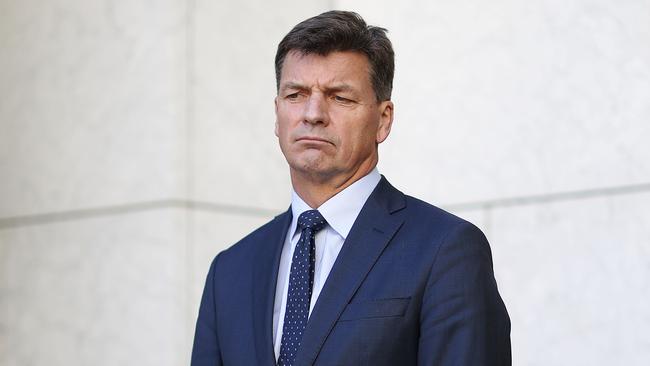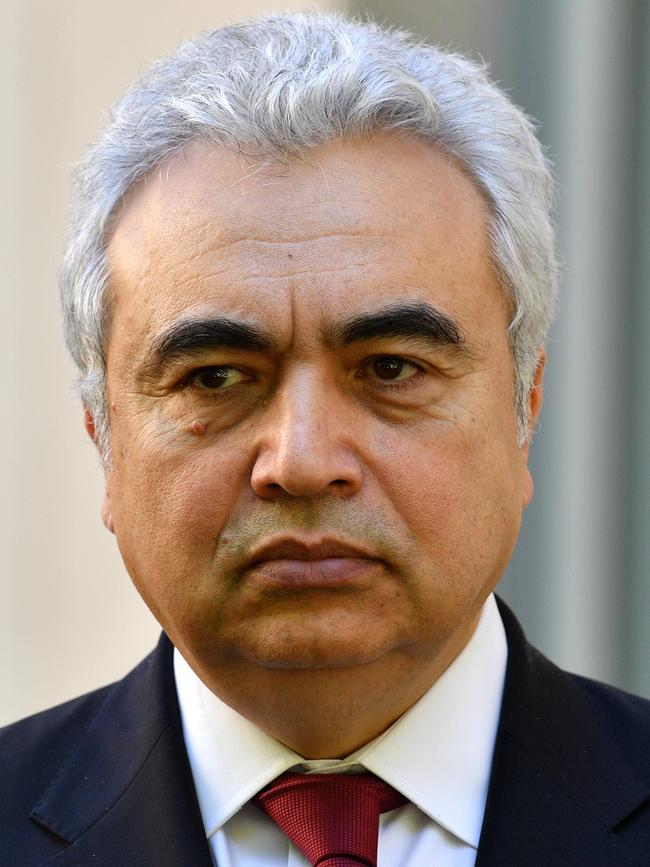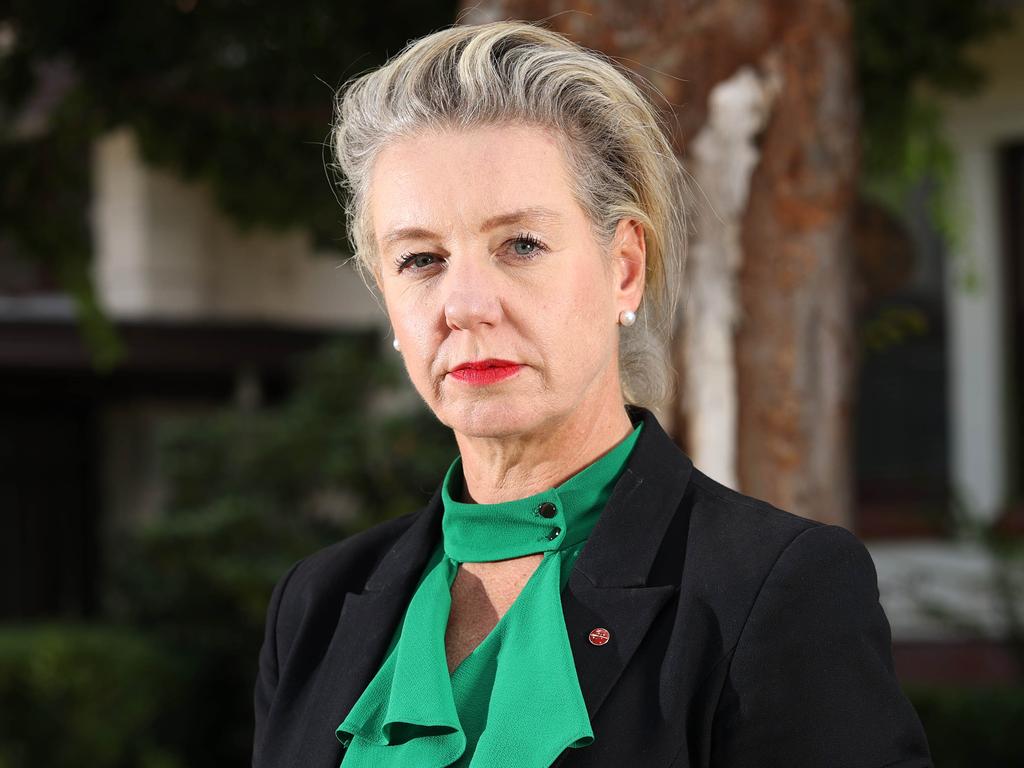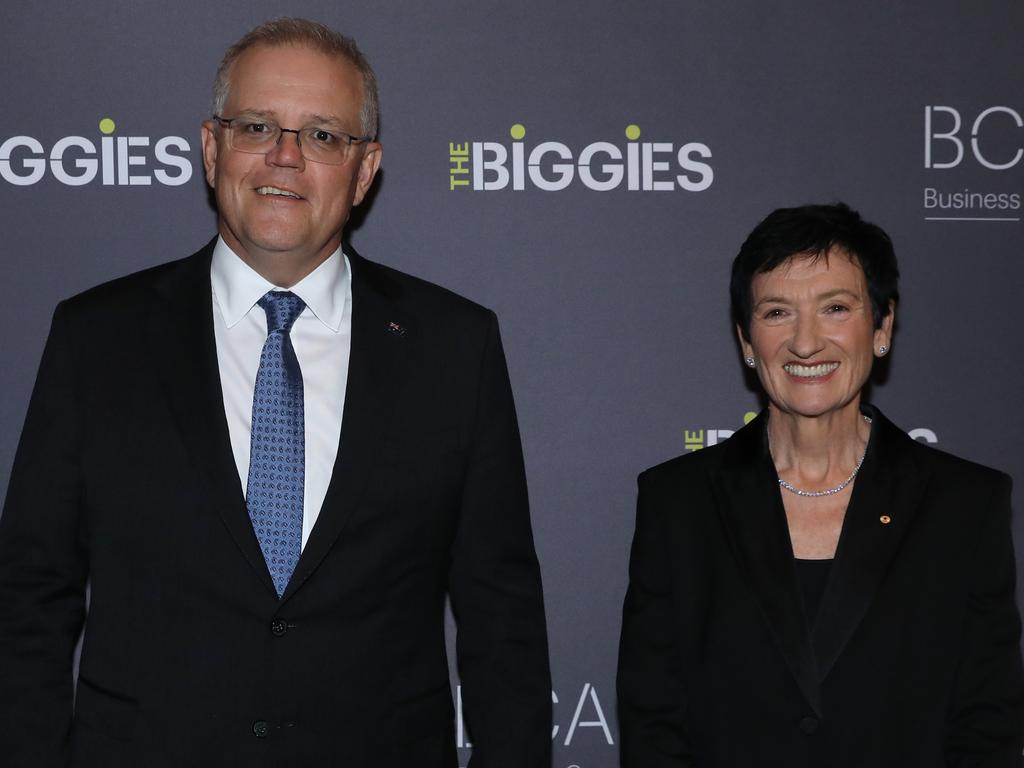Australia hit with urgent international climate demand
Australia’s plan to cut emissions by 26 to 28 per cent below 2005 levels this decade needs to be substantially lifted before the Glasgow summit, the International Energy Agency says.

Australia must dramatically boost its climate change targets ahead of the looming Glasgow summit or face being stranded by its international trading partners, the International Energy Agency has warned.
Scott Morrison’s plan for net zero emissions by 2050 will go to cabinet on Wednesday, with the federal government under renewed pressure after the Business Council of Australia demanded the nation almost double its emissions reduction target by 2030 or face a crippling hit to the economy.
The IEA, which advises Western governments on energy policy, said Australia’s plan to reduce emissions by 26 to 28 per cent below 2005 levels by the end of the decade needed to be substantially lifted to ensure the country did not become a climate laggard.
“I would like to see a significantly stronger commitment from Australia than what we have today,” IEA executive director Fatih Birol told The Australian.

Failure to act would see “Australia’s economy face the risk of being left behind compared with other countries around the world”.
Countries that have already signed up to net zero could pile pressure on countries like Australia that have yet to officially sign up to the same pledges through imposing emissions certificates and carbon border taxes, the IEA said, a move already rejected by Energy and Emissions Reduction Minister Angus Taylor.
Australia’s role as a major commodity exporter of iron ore, coal and LNG meant it must embrace the chance to develop similar capabilities in clean energy, given the threat of fossil fuel demand falling by the end of this decade under net zero policies.
Dr Birol noted President Xi Jinping has declared China would no longer build coal projects overseas. “If Australia is not part of the countries which are making strong commitments to address climate change or reduce their emissions then it will be left behind with old, traditional industries rather than driving the new global energy economy emerging around the world,” Dr Birol said.
“The map of intelligent trade will be redrawn in the future. The combined share of hydrogen-rich fuels and critical minerals will be the dominant international commodities compared to oil and gas.”
The IEA said Australia must make a stronger commitment before the COP26 climate change conference in Glasgow, which starts on October 31.
“Australia must have strong commitments both for 2030 and 2050 to future-proof the Australian economy. I would expect it to come up with a commitment before the Glasgow meeting.”
More than 50 countries and the entire EU have pledged to meet net zero emissions targets, the IEA said.
Still, the path to net zero remains highly uncertain ahead of the climate summit. China conceded this week its energy crisis and need to secure fossil fuels would mean it would reassess its timetable for hitting peak carbon emissions.
Global coal use would plummet by 55 per cent by 2030 under a net zero pathway plotted out by the IEA while no new gas fields would be developed beyond those already approved for development and LNG demand will peak halfway through this decade and fall 20 per cent by 2030.
Australia is the biggest LNG exporter in the world and among the largest producers of coal supplying Asian markets.
A final Glasgow climate package is expected to be finalised next week after Nationals MPs meet on Sunday, with Mr Taylor using a speech on Tuesday to argue that Australia must embrace a practical net zero plan to avoid “destroying some of our greatest economic strengths”.
The government’s long-term emissions reduction strategy – the centrepiece of Australia’s climate offerings ahead of the COP26 summit – will support traditional export sectors and regional communities, drive down emissions, and position the country to accelerate emerging industries and supply chains in a new-energy economy.
Scott Morrison plans to develop a hydrogen export industry responsible for 8000 jobs and $11bn of extra income by 2050, with the nation aiming to be a top three exporter by the end of the decade.
Australia has also seen record investment in solar and wind.







To join the conversation, please log in. Don't have an account? Register
Join the conversation, you are commenting as Logout